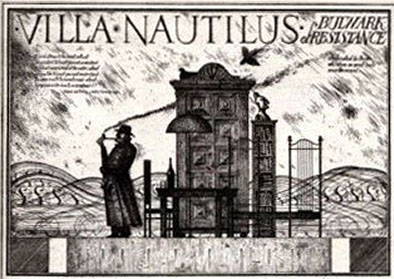The reprogramming of the city and the territory by the informal and small scale: the pavilions of Alexander Brodsky
DOI:
https://doi.org/10.6092/2281-4574/6635Abstract
Alexander Brodsky is a Muscovite architect who has developed his activity on the border between his discipline and art. After having developed a remarkable career together with his partner Ilya Utkin in which they performed some of the most relevant works of the so-called Paper Architecture, he began an independent journey.
Within the whole of his work we will study six interventions that, sharing some resources, attend to different dynamics of urban and territorial transformation. The selected works are framed between 2001 and 2017 and their titles are as follows: 95th Restaurant, Ice Pavilion, “Cloud Café”, Pavilion for Vodka Ceremonies, Rotunda and “101st km: Further and Everywhere” Pavilion. All of them, except the last one that was implanted in London, located in Russia.
All these interventions present a constructive precariousness and a programmed temporality that defines an ephemeral destiny. These pavilions refer us to different informal settlements that are located in the vicinity of Moscow and that, habitually, have been self-built by their users. Although, formally, they present similarities, from a functional point of view, we find substantial differences: a group of them seeks to meet simple needs of citizens who enjoy certain territories, almost-wild, and another materializes and satisfies experiences of transcendental order and iconic All of them have been able to reprogram certain contexts in a relevant way during periods limited in time.
Downloads

Downloads
Published
Issue
Section
License
Gli autori che pubblicano su questa rivista accettano le seguenti condizioni:- Gli autori mantengono i diritti sulla loro opera e cedono alla rivista il diritto di prima pubblicazione dell'opera, contemporaneamente licenziata sotto una Licenza Creative Commons - Attribuzione che permette ad altri di condividere l'opera indicando la paternità intellettuale e la prima pubblicazione su questa rivista.
- Gli autori possono aderire ad altri accordi di licenza non esclusiva per la distribuzione della versione dell'opera pubblicata (es. depositarla in un archivio istituzionale o pubblicarla in una monografia), a patto di indicare che la prima pubblicazione è avvenuta su questa rivista.
- Gli autori possono diffondere la loro opera online (es. in repository istituzionali o nel loro sito web) prima e durante il processo di submission, poiché può portare a scambi produttivi e aumentare le citazioni dell'opera pubblicata (Vedi The Effect of Open Access).

